The Green's Hill Novellas Read online
Page 5
Afterward, there was touching, soft conversation, and huddling under the extra blanket Whim had brought. It was one of those summer nights where the ocean roaring of the wind seemed to blow the last of the orange sunset away in tatters, and once the night was securely, dazzlingly purple, it was chilly. The two of them pulled the blanket over their heads and held a flashlight under it and whispered like children, and once again Whim caught up on Charlie’s year.
It was a good Litha. They were all good Lithas. Whim always considered himself the most honored and blessed of sidhe to see such a good man grow from such a troubled boy.
That year Charlie was excited because he was in plays. The next he was excited because he was writing them. The year after he was producing them and involved in community outreach programs that used drama as therapy. He was writing public service messages and watching young people put on programs that would benefit their community. He coached the youth of his community to speak out on every subject from the environment to tolerance, through simple plays about responsibility and tenderness. Whim was so proud of his playful lover for being responsible for such amazing, creative work!
When Whim asked him where he’d gotten the idea to use his gifts to help people, Charlie said, “From you, Whim. Where else?”
Charlie grew a little taller, but mostly his chest grew broad and filled out, and his waist and hips stayed trim and narrow. He developed a patch of chest hair that dwindled to his navel and then established what Charlie called a “happy trail” to his privates. He went from being clean shaven—in the mornings, too, because no stubble would grow—to having a goatee, to having sideburns, to being clean shaven again but with stubble in the mornings, because that is what human men did as they grew older. His hair stopped being floppy and in his eyes and started being cut short and sticking up, and with variations, that’s the way it stayed.
One year, his eyebrow ring disappeared. The next year, he didn’t even have the scar from where it had been.
He never stopped greeting Whim by running into his arms and wrapping his legs around Whim’s waist, for which Whim was profoundly grateful.
He did take other lovers, some serious and some short-term. He would tell Whim about them every year, saving up the best or brightest stories to make Whim smile or wonder or be proud.
One year he grew sober when Whim asked about a lover, saying that this wouldn’t make a good story.
“I’m here for sadness too,” Whim told him, and Charlie looked away.
“Except you won’t be, Whim,” Charlie said, his face bleak. “I’ll go home, and Steven will be gone because he didn’t understand about Litha, not at all, not even a little, and I’ll be alone again for another year.”
Whim caught his breath. His fault. His Charlie was alone, and it was his fault.
“Do you want to stop?” he whispered. “Do… do you want to leave me on Litha too?”
Charlie shook his head adamantly, but he couldn’t smile either. “I’d give up a thousand lovers, Whim, just to spend Litha with you. You know that, right?”
Whim nodded, swallowing. It had never occurred to him—although it should have—that their moments of Litha magic could hurt Charlie as well as heal him. The thought of hurting his boy… his man… his lover… it tore something terrible in Whim’s chest.
“Do you like your life, Charlie?” Whim asked, hoping he’d say, No, Whim. Take me away. Rescue me.
“Yes!” Charlie said unexpectedly. “I love it. I have a sweet little house, and cats who love me. I have a job I’m proud of. I have a lover—even if it’s once a year—who makes my life magic. I’m grateful, Whim. Everything you gave me—I haven’t wasted any of your gifts, you need to know that.”
Whim’s face fell. “Oh,” he said in a small voice. “You are happy. Then of course you must stay.”
And now it was Whim who waited, anxiously, for the moment when Charlie might let him know that it was okay for Whim to take him home.
Charlie was not the only one who changed, though.
Whim had found his calling in the graceful little toys, and although his choice of subject matter would vary from moment to moment, it appeared he’d finally found a thing that could capture his butterfly mind and make him focus on something that would help his people. He made a special toy every year for Charlie, usually based on some story Charlie had told him from the year before. The year after Charlie produced his first play, the toy had a stage, tiny actors dressed in costume, Charlie in the audience, looking very grown up. The year Charlie bought his house, Whim had created the house itself—down to the cat sitting in the window, twitching its tail. He was patient. He could remember. He knew that Charlie would be waiting.
He took fewer lovers now, and the ones he took, he cared for, cherished, and remembered. Not once since he’d met Charlie in that clearing on Litha had he ever forgotten he was with somebody or burst into song. Whim had always considered himself insubstantial and only partially there in any moment. Thinking about what Charlie could be doing, at any moment in any given day, made each day worth remembering. He kept his feet—and his mind—securely on the ground as time went by and discovered that he, too, could offer something real to the world.
“You’re actually pretty flippin’ scary there, mate,” Adrian told him, his arm securely wrapped around the shoulders of the mortal sorceress he’d brought home one night. She appeared to be an ordinary mortal, but she had become invaluable to the hill. “You become any more of a grown-up and you’ll be just like Green.”
Cory smiled at him shyly, her plain face radiating an inner beauty that Whim was unsure mortals could see. She was, Whim thought painfully, barely older than Charlie had been when he and Whim had first met. Whim was touched with the frightening urge to take Adrian aside and yell at him. The girl is too young. Don’t lock her into love with you now. Don’t play with her emotions the way you and Green can do. Give her room to grow, dammit! But given the powerful, frightening magic this girl could do with little more than a thought and some strong emotion, Whim refrained. She belonged on the hill, probably since birth, while for Charlie, it was a choice. It had to be.
Whim smiled sadly back and bowed. “I could never be like Green,” he said through a swollen throat. “For one thing, my hair is usually purple.”
This had made Cory laugh as though charmed, and Whim resolved to make her a toy someday, because she could truly become his queen, and he loved her just as he loved Adrian and Green as his princes. But he didn’t love any of them like he loved Charlie.
The Litha Adrian brought Cory home was Whim and Charlie’s eleventh—Charlie had told him that the year before. It was an unsettling time at the hill. Adrian had not just brought home a new lover from outside; Green had taken to her as well. There was an enemy threatening them all. The vampires and werecreatures seemed to be in constant danger. Mitch, one of the werekitties that Whim loved the most, had been killed, leaving his mate Renny despondent and empty. Every vampire, elf, and werecreature was huddling on the hill like ancestral humans around a fire.
Whim, who only went out during Litha, began to worry that he wouldn’t be able to make his moment with Charlie.
But he had to make his moment with Charlie, he thought plaintively. He had to. It was the only moment they would get. Charlie had his life, his happy life, and he only needed Whim on Litha.
When the longest day of the year dawned and Whim realized that the situation with their enemy was going to be resolved that night, he did something unprecedented.
He left the hill without Adrian’s permission, and he did it during daylight.
The magic little clearing he and Charlie had made theirs looked smaller and plainer during the day. The sun was hideous. One of the reasons Whim only came out at night during the summer was that elves did not do well in the heat, and as he struggled across the clearing to the trees where they usually met, a sleeping bag and picnic basket in his arms, he thought crossly that no wonder the long grasses were brown. The
sun had apparently killed everything in the area with incredible malice. Even the dirt was hot and painful under his bare feet, and Whim realized with a shock that if he stayed here in this unfriendly place for the entire day, he would become ill. Green always kept the temperature in the hill cool so that his elves might prosper, and Whim was hit with the sad realization that it hadn’t just been artifice and random rules keeping him out of Charlie’s life.
If this field alone, this place he loved, was this hostile on a summer’s day, how bad would the rest of the mortal world be? Charlie really did need to come to Whim, and Whim fought off a moment of despair that he would ever be ready to do that.
Whim was patient now. He had learned. He could wait.
But not today. Today, he set down his bundles by the tree and passed a geas—a spell—that said that only Charlie could see them. (For Charlie, they would probably glow.) He left a note, as well as Charlie’s toy for the year. This year it was a tiny drum set. Charlie had joined a band after work hours, and the drums were his favorite. When you blew on it, the cymbals crashed and the tympani rattled.
The note was brief and, Whim hoped, not too worrisome.
Charlie—Serious hill business tonight, but I will still be here. Even if you have to wait past dawn, I will not break our promise.
He hoped it was not unfair. For the first time he cursed that he and Charlie had ignored basic modern conveniences such as phone numbers or e-mail addresses (not that Whim could use a computer, but there were such things on the hill) because it would make the separation less hard for Charlie if he could talk to Whim every day.
Whim longed to talk to Charlie every day. But he could not live in this world, he thought miserably as he trekked back to his car. At least not in the summer, and probably not during any other time. This battle that the hill had planned on the other side of the foothills terrified Whim; it would be loud and violent, and if it had been for any other reason than to protect Adrian and Green, he might very well have retreated to the cowardice of his kin and abstained.
But it was for Adrian and it was for Green, and the least he could do would be to show up and think of creative, capricious ways for their enemies to die. They were fighting a rogue vampire kiss, he thought with some optimism. Maybe he could simply make them fly into trees.
In either case, Whim needed to live on the hill. The human world only worked for him during Litha, or perhaps other nights with magic in them. And Charlie needed to want to be something more than mortal. He didn’t even need to quit his beautiful job, but he needed to commit to the hill, and that was a decision Whim couldn’t pressure him into or beg him to make. It had to be Charlie’s own.
Whim looked longingly at the picnic basket and the sleeping bag sitting forlornly in what appeared to be an abandoned back lot. In the light of day, it needed some serious magic to take on the glamour of the Litha night.
Charlie—Discipleship
CHARLIE WAS seriously worried by the time Whim showed up. The note itself had sounded sad, almost like a desperate promise. Charlie wondered what was going on in Whim’s life to take up so much of a night that even Charlie could see meant the world to Whim. He could still remember the terrible (but not bitter) disappointment on Whim’s face when he’d said, “You’re happy, so you have to stay.”
All those years of wishing that he could follow Whim, and now his life was too good to leave? Whim didn’t have to feel bitterness. Charlie felt it for him. Damn… damn, damn, damn, and damn. After living with that moment in his heart for a year, Charlie was pretty much ready to drop everything not to have to live with it again. He was working as a high school counselor these days, doing his music and his drama as extracurricular activities, and he was prepared to simply not show up for work one day, leave his house and, hell, leave his cat, and simply walk away, a victim of the night, to make sure he never had to feel Whim’s abandonment again.
And now, Charlie thought he’d do all that plus walk on fire just to be sure Whim was all right.
He was and he wasn’t.
He arrived in the cold of the night. Charlie, who had long since abandoned the ratty trench coat, was wrapped in the blanket, sitting with his back propped up against their tree and nodding off, when Whim appeared at the far side of the clearing, walking unevenly and dazedly to where Charlie was sitting. For a moment, Charlie’s breath froze in his throat. It looked like Whim was covered in blood.
He was across the clearing in moments, and Whim put up his hands to hold him off. “It’s not mine,” he said abstractedly. “You don’t need to get it on you.”
“Fuck that.” Charlie evaded the warning hands and took Whim’s arm, leading him to their place with gentle movements. Looking up, he could see the tracks Whim’s tears had made through the even spatter of blood on Whim’s face. “C’mon, Whim. Come here. Come tell me what happened.”
But Whim didn’t, not right away. He sat on the sleeping bag and let Charlie cover his shoulders with the blanket, and when that didn’t seem to work, he let Charlie get under the blanket with him and just sit, warming their bodies in the soft breeze. Eventually Whim laid his head on Charlie’s shoulder and murmured, “You humans here, you don’t have princes. You have presidents. You had one you thought of like a prince, didn’t you?”
Charlie was confused for a moment. “Like JFK?” he asked, completely thrown out of his element.
“Yes,” Whim said. “Do you think when that prince died, it was worse for the people who ate breakfast with him? Who saw him be happy with his family? Who maybe shared his bed? Although that’s frowned upon, I know. Do you think those people grieved for a friend and a prince? Do you think they wondered which one hurt more?”
Something about this question was making Whim openly weep, and Charlie could only answer honestly. “I think they probably did, yeah,” he said softly. “I think the leader and the man were probably very, very different, but they’d miss them both. I think they maybe grieved more for their prince than for other men. Why?”
“Because my prince died tonight,” Whim told him on a sob. “My prince died tonight, so horribly and so quickly that I’m wearing….” He shuddered. “We’re all wearing his blood. And his mates… they did such horrible things in the wake of his death. Green… Green sang the hearts of his enemies into his hands, and the girl-sorceress… Goddess….” Whim turned a helpless face to Charlie. “She’s barely older than you were, Charlie. She’s a child. And she did such a terrible thing out of grief. And I’m glad. Isn’t that awful? I’m glad she did it, because he was my friend and my prince and I wanted to kill and kill and kill and I didn’t have to. She did it for me. She just pulled magic out of the air and did such horrible things and I was glad. Oh, Charlie… there’s a big shredded emptiness where my heart is supposed to be, and the only way I know it’s beating is because you’re next to me to hear it.”
Charlie was helpless in the face of Whim’s grief. He could barely track the events as they tumbled out of Whim’s mouth in a disorganized jumble, but he’d heard of Adrian. He’d heard of Green. In the same way Whim asked about Charlie’s life, Charlie heard bits and snippets of life on Green’s hill and of the gentle men who inspired such loyalty from his Whim. And now Adrian was dead, and Green was in pain, and this girl-sorceress Cory (who was new, granted) was lost like a child, and Whim was not much better.
There was nothing to do but hold him, comfort him, tell him that Charlie would be there for as long as Whim needed him.
Whim turned a tear-ravaged face to him with the slightly open mouth of a six-year-old. “But I’ll always need you, Charlie,” he said with such stricken earnestness that Charlie had no recourse but to believe him with his whole heart.
“I’ll always need you too,” Charlie told him, and whatever that was worth, it seemed to quiet Whim down. The sobs eventually ceased, and Charlie eased Whim’s head into his lap and sat there, still leaning against the tree, and watched the sun rise. Charlie was half expecting him to just vaporize in the gold l
ight of dawn, but the reassuring weight stayed there on his thighs, and the lovely curtain of hair stayed under his hand like coarse satin. When the sky was truly light, Charlie looked down and saw that the hair was scarlet and black today—the color of old blood.
“Whim?” he said softly. “Whim, we need to leave. I don’t want you to just go away, not like this. Can you come home with me, just for a day or two? I’ll take care of you, Whim. I swear, nobody will know you’re there. You’ll be just as secret at my house as you’ve always been.”
Whim sighed. “Everybody at my house knows you,” he said, surprising Charlie badly. “But yes. I don’t want to leave you. Not yet. Not like this.” There was a pause, and Charlie felt guilty because a corner of his heart was overjoyed to hear this. Then Whim said, on a note of complete practicality, “But we’ll have to take my car.”
“Car?” Another surprise. “You drove a car?”
Whim nodded and sat up, pushing his tangled hair out of his face. The color had changed a little—it was now a murky, mottled brown. Grief, yes, but not so fresh. “It’s specially treated,” he explained, and then he shrugged. “If we drive cars that haven’t been blessed with a salt wash and herbs, the cold iron in the engine eventually makes us sick.”
Charlie blinked and stood up, offering his hand to Whim, who took it and rose gracefully. Charlie was almost surprised to see Whim turning and gathering the sleeping bag and the blanket, putting them in his own picnic box. He turned to Charlie suddenly, and now his hair flashed a bright orange.
“Did you see the box?” he asked, a trace of the joy that Charlie was used to in his voice.
Charlie nodded. “It was beautiful,” he said earnestly. “They’re always beautiful. I have a shelf for them, you know. A place of honor in my house. I’m glad you’ll get to see it.”
Whim nodded and continued packing, hoisting the box and the sleeping bag up easily. He turned toward the car, but not before casting a baleful look at the sun.

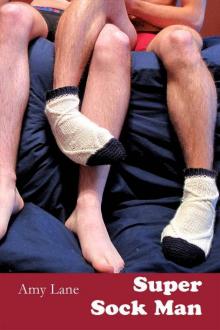 Super Sock Man
Super Sock Man Safe Heart (Dreamspun Desires Book 102)
Safe Heart (Dreamspun Desires Book 102)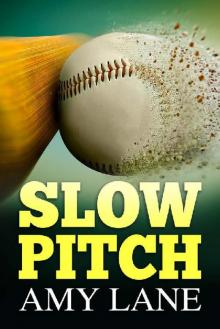 Slow Pitch
Slow Pitch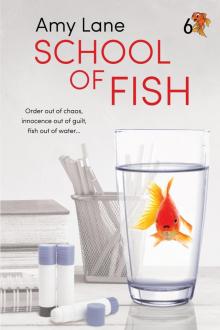 School of Fish
School of Fish Shades of Henry (The Flophouse Book 1)
Shades of Henry (The Flophouse Book 1) Ethan in Gold
Ethan in Gold Hidden Heart
Hidden Heart Familiar Demon
Familiar Demon Shortbread and Shadows
Shortbread and Shadows Silent Heart
Silent Heart Shortbread and Shadows (Dreamspun Beyond Book 41)
Shortbread and Shadows (Dreamspun Beyond Book 41) All the Rules of Heaven
All the Rules of Heaven Shades of Henry
Shades of Henry Homebird
Homebird Under the Rushes
Under the Rushes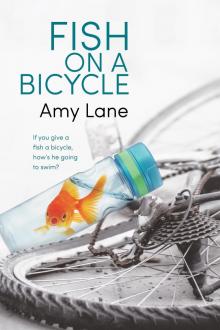 Fish on a Bicycle
Fish on a Bicycle Warm Heart
Warm Heart The Muscle
The Muscle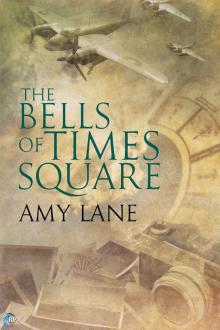 The Bells of Times Square
The Bells of Times Square![Jack&Teague [& Katy] stories 1-5 Read online](http://i1.bookreadfree.com/i/03/19/jackandteague_and_katy_stories_1-5_preview.jpg) Jack&Teague [& Katy] stories 1-5
Jack&Teague [& Katy] stories 1-5 Wounded, Volume 1
Wounded, Volume 1 Paint It Black
Paint It Black The Virgin Manny
The Virgin Manny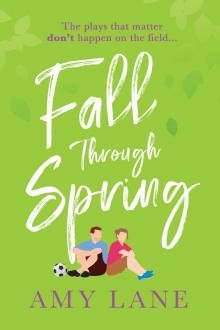 Fall through Spring
Fall through Spring Clear Water
Clear Water If I Must Lane
If I Must Lane Stand by Your Manny
Stand by Your Manny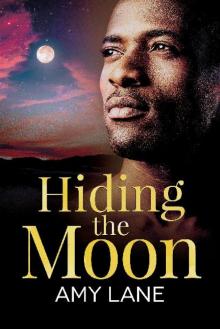 Hiding the Moon
Hiding the Moon Freckles
Freckles Chase in Shadow
Chase in Shadow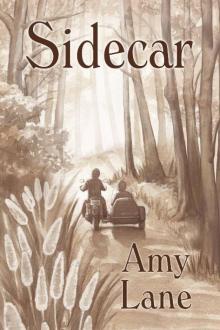 Sidecar
Sidecar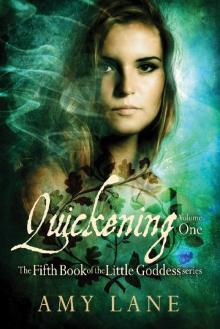 Quickening, Volume 1
Quickening, Volume 1 Black John
Black John Bobby Green
Bobby Green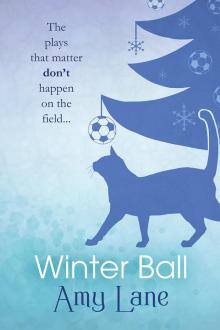 Winter Ball
Winter Ball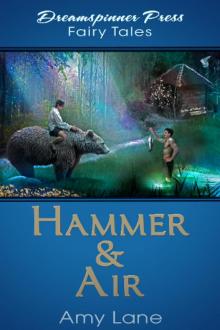 Hammer & Air
Hammer & Air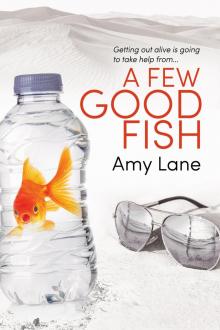 A Few Good Fish
A Few Good Fish Dex in Blue
Dex in Blue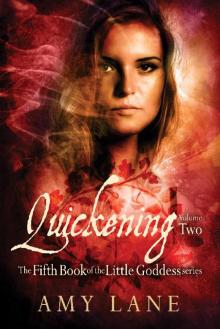 Quickening, Volume 2
Quickening, Volume 2 A Fool and His Manny
A Fool and His Manny Manny Get Your Guy (Dreamspun Desires Book 37)
Manny Get Your Guy (Dreamspun Desires Book 37) Familiar Angel
Familiar Angel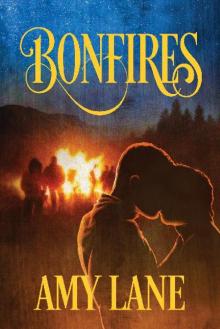 Bonfires
Bonfires The Locker Room
The Locker Room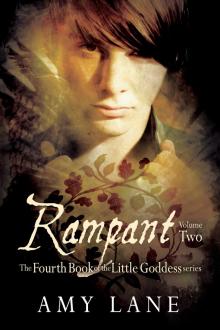 Rampant, Volume 2
Rampant, Volume 2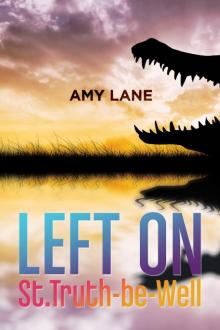 Left on St. Truth-Be-Well
Left on St. Truth-Be-Well A Solid Core of Alpha
A Solid Core of Alpha Red Fish, Dead Fish
Red Fish, Dead Fish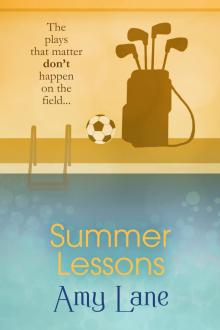 Summer Lessons
Summer Lessons Country Mouse
Country Mouse City Mouse
City Mouse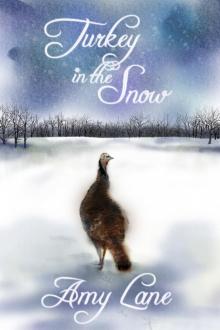 Turkey in the Snow
Turkey in the Snow Rampant, Volume 1
Rampant, Volume 1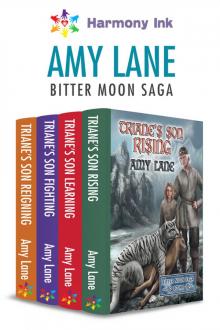 Bitter Moon Saga
Bitter Moon Saga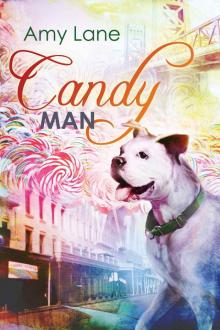 Candy Man
Candy Man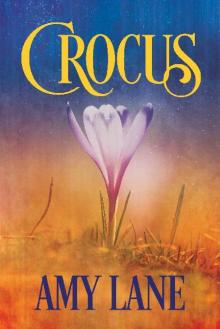 Crocus
Crocus Green's Hill Werewolves, Volume 2
Green's Hill Werewolves, Volume 2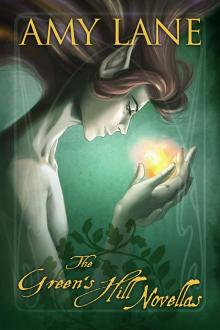 The Green's Hill Novellas
The Green's Hill Novellas